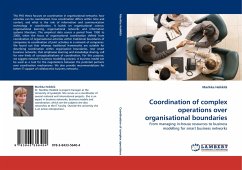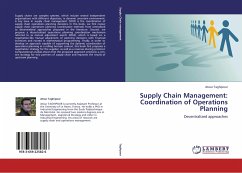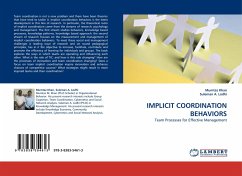
Coordination of complex operations over organisational boundaries
From managing in-house resources to business modelling for smart business networks
Versandkostenfrei!
Versandfertig in 6-10 Tagen
52,99 €
inkl. MwSt.

PAYBACK Punkte
26 °P sammeln!
This PhD thesis focuses on coordination in organisational networks: how activities can be coordinated, how coordination differs within time and context, and what is the role of information and communication technology in coordination. It builds on organisational science, organisational learning, organisational networks and information systems literature. The empirical data covers a period from 1990 to 2008, when the focus of organisational coordination shifted from coordination of organisational activities within traditional boundaries of companies to coordination of joint activities in a netw...
This PhD thesis focuses on coordination in organisational networks: how activities can be coordinated, how coordination differs within time and context, and what is the role of information and communication technology in coordination. It builds on organisational science, organisational learning, organisational networks and information systems literature. The empirical data covers a period from 1990 to 2008, when the focus of organisational coordination shifted from coordination of organisational activities within traditional boundaries of companies to coordination of joint activities in a network of companies. We found out that whereas traditional frameworks are suitable for describing coordination within organisation boundaries, new smart business networks, that emphasise learning and knowledge sharing, call for new kinds of conceptualisations of coordination. For this purpose, we suggest network's business modelling process: A business model can be used as a tool for the negotiations between the potential partners over coordination mechanisms. We also provide recommendations for better IT support of collaborative business networks.












